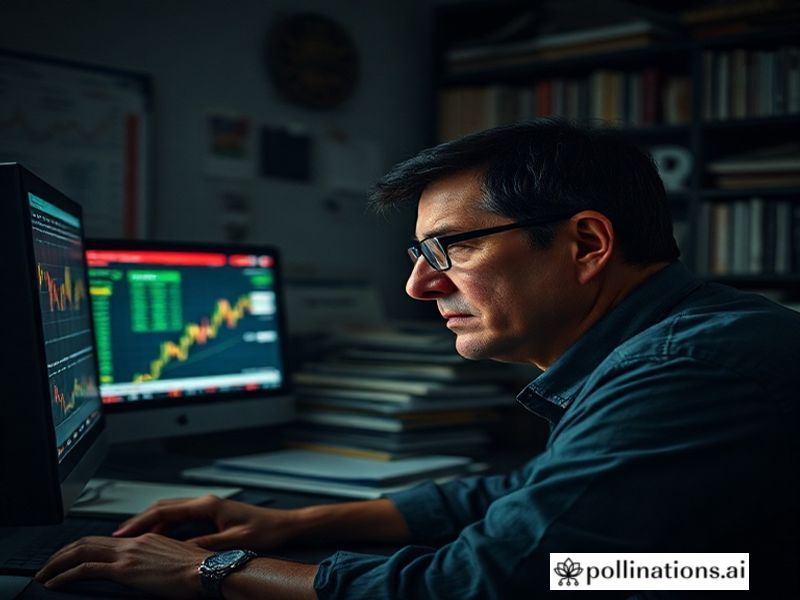Michael Burry: The Meme Lord’s Favorite Wall Street Villain
**The Big Short’s Biggest Star: Why Michael Burry is Trending Globally**
Alright, folks, buckle up! We’re diving into the world of finance, memes, and a man who’s somehow become the internet’s favorite Cassandra. Michael Burry, the real-life inspiration behind Christian Bale’s character in *The Big Short*, is trending globally, and it’s not just because people finally got around to watching the film. No, no, no. This is a tale of markets, memes, and the power of the internet. So, grab your popcorn, and let’s get started.
**The Man Who Saw the Crash Coming**
First things first, who is Michael Burry? He’s a hedge fund manager who made a name for himself by predicting the 2008 financial crisis. While everyone else was busy partying like it was 1999, Burry was shorting the housing market, betting against the banks, and essentially calling the whole thing before it happened. He made a fortune, became a legend, and inspired a Hollywood film. Not too shabby, right?
**The Meme Stock Maestro**
Fast forward to 2021, and Burry’s back in the spotlight. This time, it’s not because of a financial crisis but because of a financial phenomenon: meme stocks. You know the drill—GameStop, AMC, BlackBerry. Regular folks on Reddit’s WallStreetBets forum banded together to drive up the prices of these stocks, sticking it to the hedge funds that had bet against them. And who was one of those hedge funds? Burry’s Scion Asset Management.
Burry’s bearish stance on these meme stocks, combined with his past success, made him a target for the internet’s wrath. Meme lords took to Twitter and Reddit, roasting Burry and his positions. The man who saw the crash coming was now the villain in the meme stock revolution.
**The Cultural Context**
So, why is this significant? Well, it’s not just about stocks and finance. It’s about the power of the internet, the rise of the retail investor, and the cultural shift in how we view Wall Street.
For years, Wall Street has been the bad guy—the fat cats in their ivory towers, playing with other people’s money. But with the rise of apps like Robinhood and communities like WallStreetBets, regular folks have been able to get in on the action. They’re not just investing; they’re making statements, sticking it to the man, and having a laugh while they’re at it.
Burry, with his past success and Hollywood glamour, became a symbol of the old guard. The fact that he was on the wrong side of the meme stock revolution made him a target, a punchline, a meme. It’s not about the money; it’s about the culture.
**The Social Impact**
The social impact of this trend is twofold. On one hand, it’s a testament to the power of the internet and the collective action of regular people. They’ve shown that they can move markets, challenge the status quo, and have a say in the financial world.
On the other hand, it’s a reminder of the risks involved in this game. Meme stocks are volatile, and the retail investors driving this trend are playing with real money. The internet might be a great equalizer, but it’s not a magic wand. The stakes are high, and not everyone’s going to come out on top.
**Why It’s Significant**
So, why should you care? Well, whether you’re an investor, a meme lord, or just a casual observer, this trend is significant. It’s a snapshot of our times, a reflection of our culture, and a glimpse into the future of finance.
It’s about the democratization of investing, the power of the internet, and the cultural shift in how we view Wall Street. It’s about a man who saw the crash coming, a revolution led by meme lords, and the intersection of finance and internet culture.
In the end, it’s not just about Michael Burry. It’s about us—the internet, the memes, the culture, and the future of finance. So, buckle up, folks. It’s going to be a wild ride.







